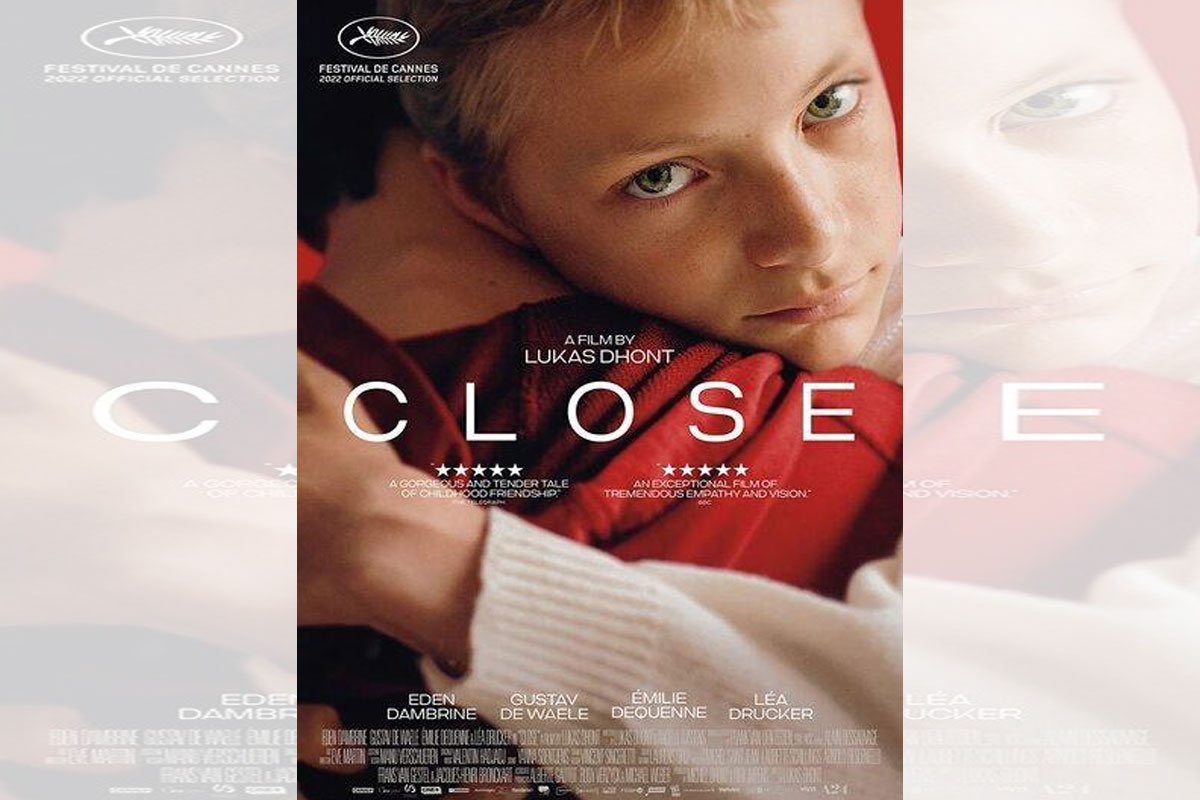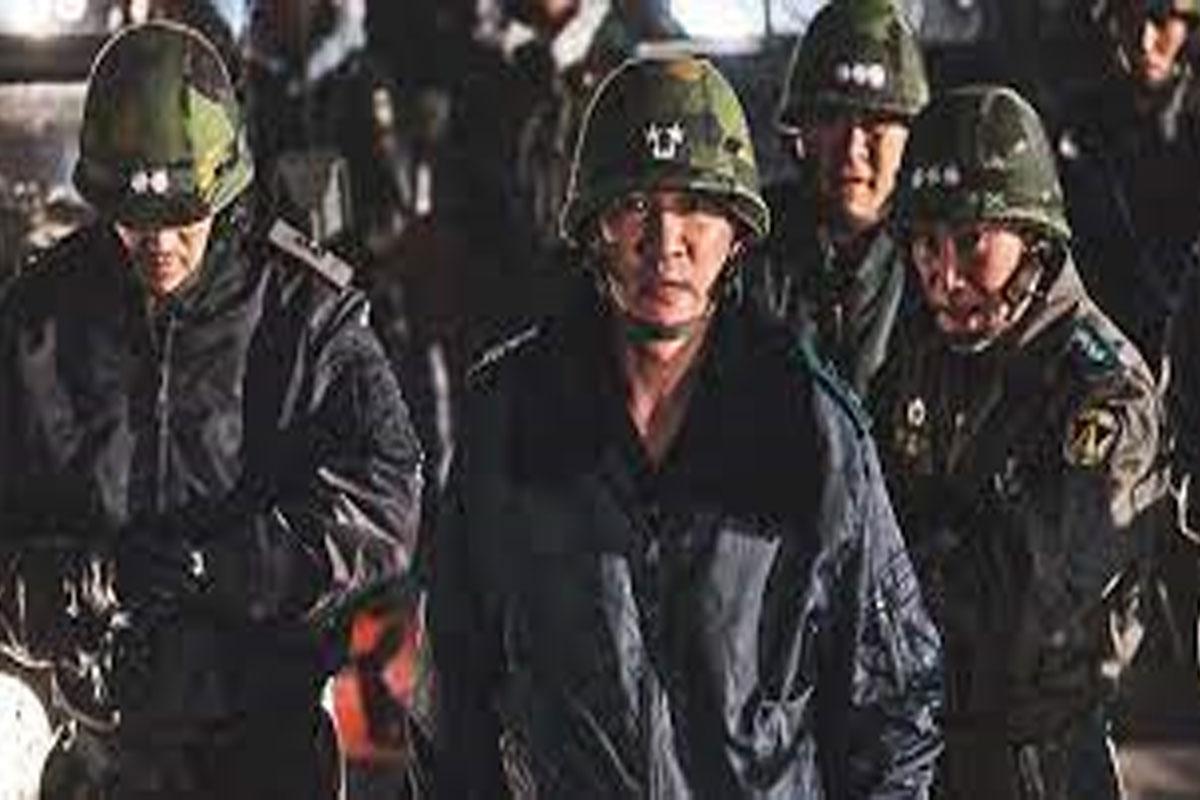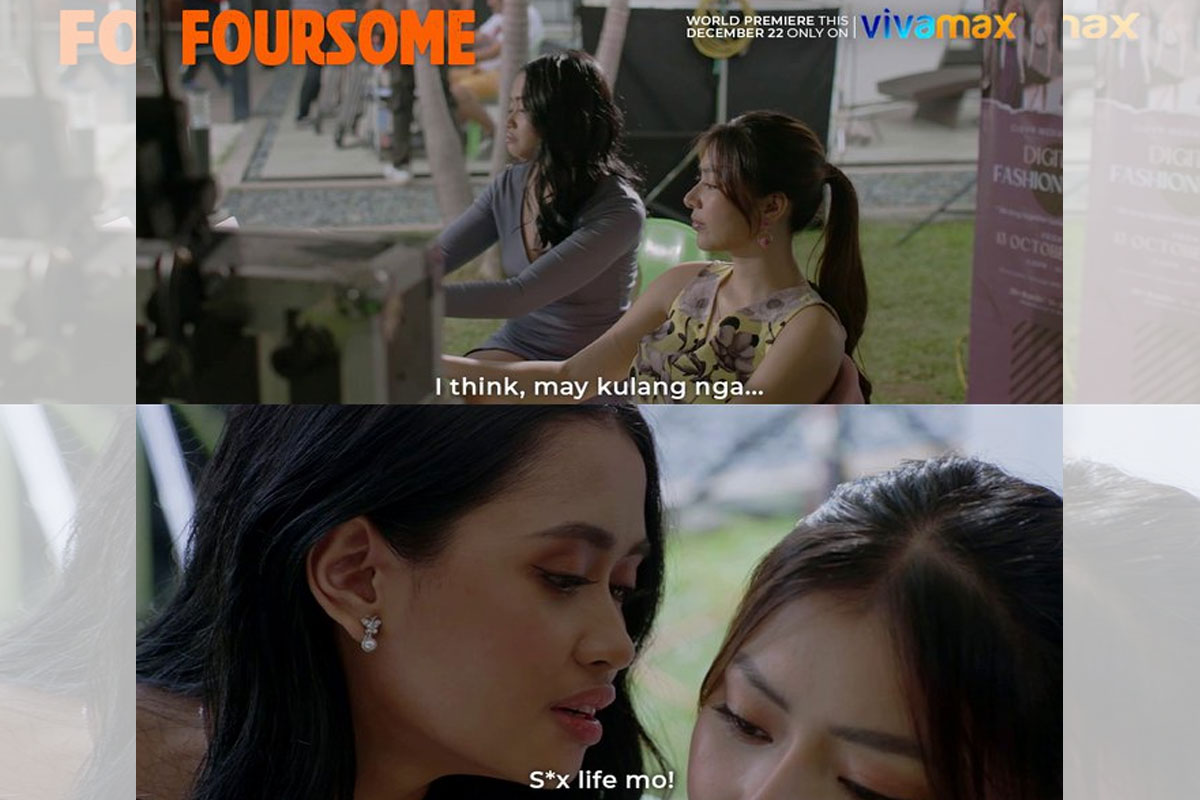
Review of Belgian-French film, ‘Close,’ nominated at the last Oscar Awards
 ‘CLOSE’ is a co-production between France, Belgium and the Netherlands nominated in the last Oscars for best international film. It is set in a rural town in Belgium with French dialogue, also some Flemish.
‘CLOSE’ is a co-production between France, Belgium and the Netherlands nominated in the last Oscars for best international film. It is set in a rural town in Belgium with French dialogue, also some Flemish.
It’s directed by Lukas Dhont, a Belgian writer-director whose debut film, “Girl”, won the best first feature film at the Cannes Filmfest in 2018, when he was only 27 years old. This is “Girl”, about a transgender who pursues a career as a ballerina. Dhont is openly gay.
“Close” is his second film. It premiered in Cannes last year and won the Grand Prix. The film starts during summer, with two 13-year old boys, Leo (Eden Dambrine) and Remi (Gustave de Waele), playing like action heroes as they fight some imagined bad guys.
They are very close friends and Leo often sleep over at Remi’s house, with his parents Sophie (Emile Dequenne) and Peter (Kevin Jannsens), treating him like their own child. Leo’s parents, Nathalie (Lea Drucker) and Yves (Marc Weiss), who are into flower farming, are also very warm to Remi.
Their idyllic summer soon ends and the boys both attend the same middle school. Their classmates notice how close they are and some of them tease them and suspect them as faggots.
Leo is quickly affected, becomes conscious about it and starts distancing himself from Remi. But sexuality is not really a factor in their relationship as friends, until their homophobic classmates insinuated that they are a couple.
One night, while sleeping at Remi’s home, Leo leaves the bed they used to share together and chooses to sleep on the floor. When he wakes up, he sees that Remi has joined him and is also sleeping on the floor beside him.
In school, Leo joins the ice hockey team and cultivates other friendships, to further distance himself from Remi, who gets so confused. They have a physical confrontation in their school ground that becomes violent, prompting their classmates and teachers to separate them from each other.
If you intend to watch the movie, we suggest you stop reading now as the next paragraphs would contain spoilers. We initially thought we won’t go into the details of what happened, but we cannot make relevant comments of how good the film is without mentioning it, so here goes.
Their class goes on a trip to the beach and Remi is not able to join them. When they return to their school, their parents are waiting for them. Leo’s mom goes to him inside the schoolbus and he quickly surmises that something bad has happened to Remi.
It is not actually mentioned but it becomes apparent that Remi has killed himself in their bathroom. You can feel that Leo is grieving inside, but he cannot verbalize his emotions and just keeps it to himself. He continues to train as a hockey player and to help in their farm, planting and harvesting flowers.
But you know his pain is all bottled up inside. During a counseling session, his classmates talk about Remi and they praise him as a friendly and cheerful boy. Leo reacts vehemently, as he feels that they don’t really know Remi. He suddenly stands up and leaves the group.
It’s easy to see that he’s really disturbed as one night, he wets his bed, so he transfers to the room of his older brother, Charlie (Igor Van Dessel), and there, he is finally able to share his guilt feelings about Remi’s suicide.
Eventually, he summons enough courage to go to Remi’s mom, Sophie, who was the one who found Remi’s dead body. He confesses he feels that he is guilty because he pushed Remi away.
The film is presented with so much restraint and subtlety, avoiding melodrama by not making any overt attempt to manipulate our emotions. But we found ourselves teary eyed in a couple of scenes, simply because the script is so tastefully written in its portrayal of heatbreak and pain.
In one scene, Leo breaks his arm while playing hockey and while it is being treated by the doctor, he starts crying. All throughout his friend’s death and funeral, you don’t see him cry. So you know that his tears now are not because of his broken arm but because of all the unexpressed grief that he is feeling inside.
The film offers gorgeous visuals, especially the scenes where the characters just keep moving, running, riding their bikes, doing work in the flower farms – and the camera just flawlessly follows them. It is also powerfully acted by the two boys, who are both total newcomers but acting like real pros.
Leo is the blonde boy and Remi is the one with dark hair. They both look very good and full of innocence on screen, giving compelling performances without ever going over the top. Seeing the end of their friendship is really quite devastating.
Among the adults, Dequenne as Sophie, Remi’s mom, has the best role and she is equally touching specially in her and Leo’s final scene in the woods. But Remi’s dad also has his touching scene while they’re having dinner and he quietly breaks down.
The best foreign film Oscar was won by the German entry, “All Quiet on the Western Front”, which has many boring parts. “Close” certainly offers more touching moments. The film is really about the tragic effects of homophobia, and the subsequent suicide and guilt feelings.
And it’s all very tastefully handled. The movie’s main theme reminds us of an old black and white film we saw in 1961 as we were graduating from high school, “The Loudest Whisper”.
This was based on a play, “The Children’s Hour” and starred two of our fave Hollywood actresses, Audrey Hepburn and Shirley Maclaine, as two teachers whose friendship was ruined by malicious gossip spread by one of their students.
The ending of this film was borrowed by the late Director Joey Gosiengfiao for the way he concluded the original “Underage” as it was really full of impact.






























